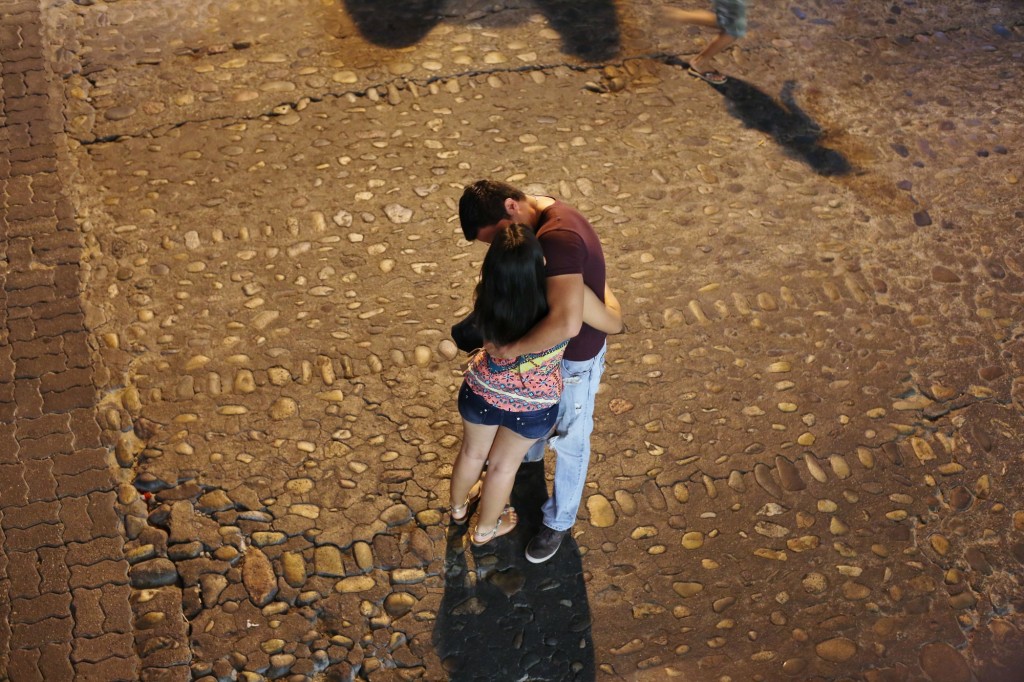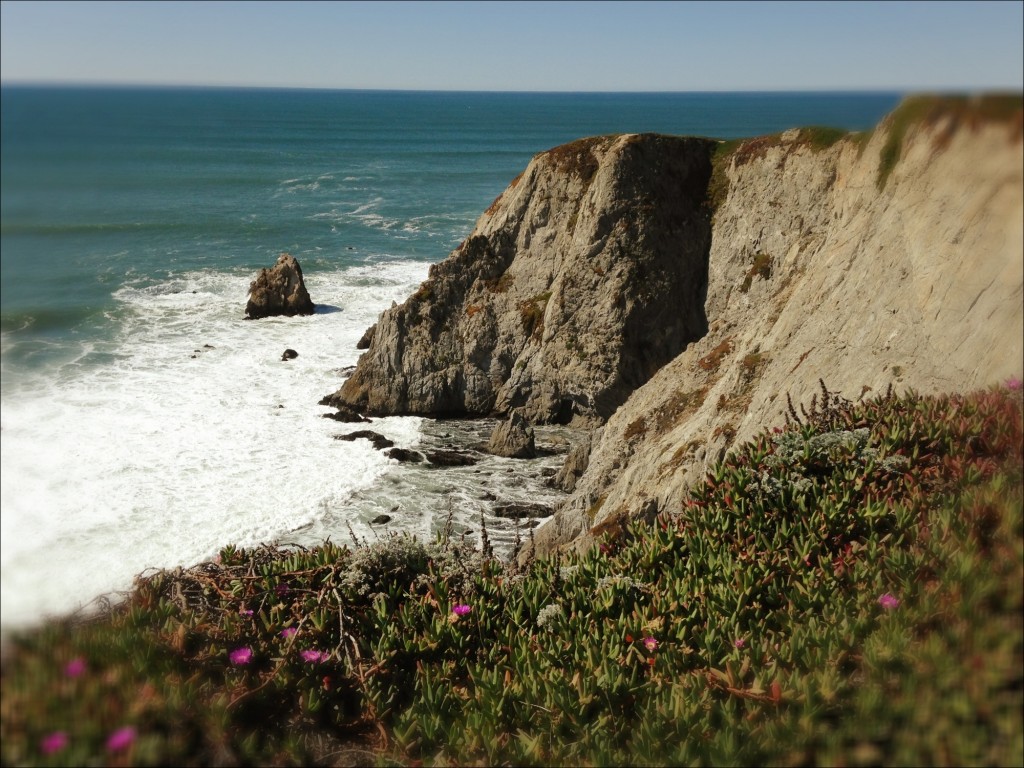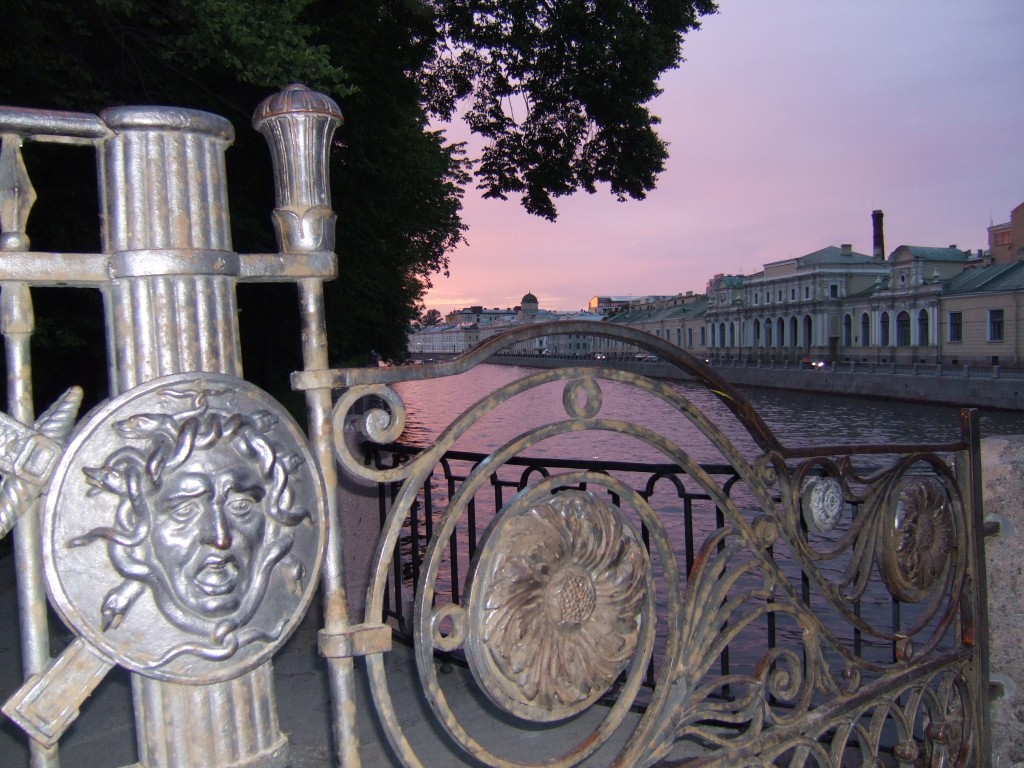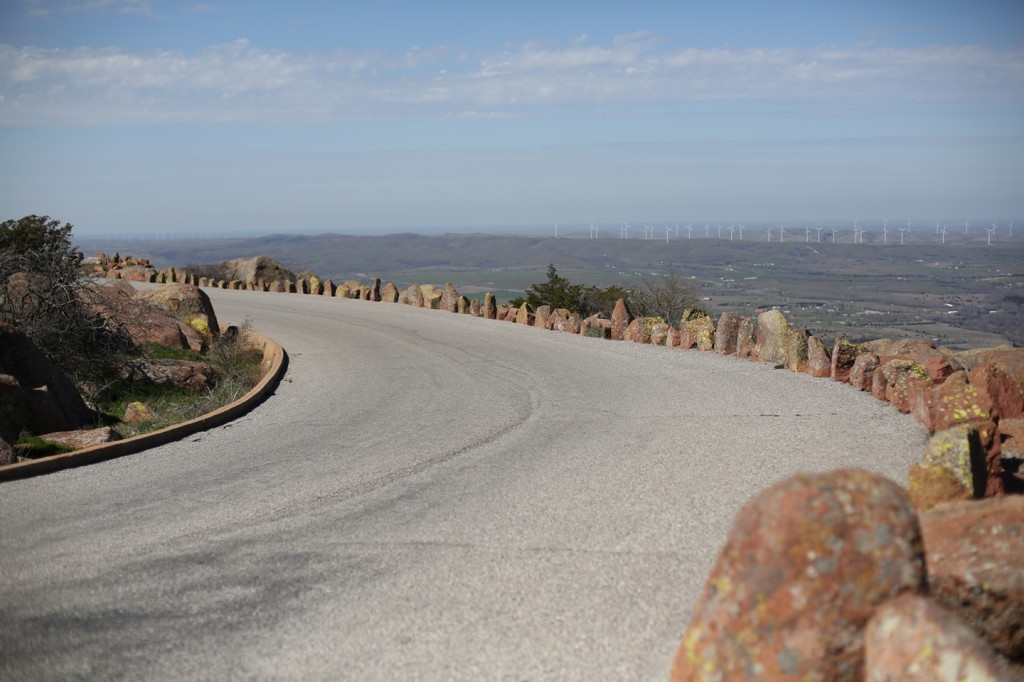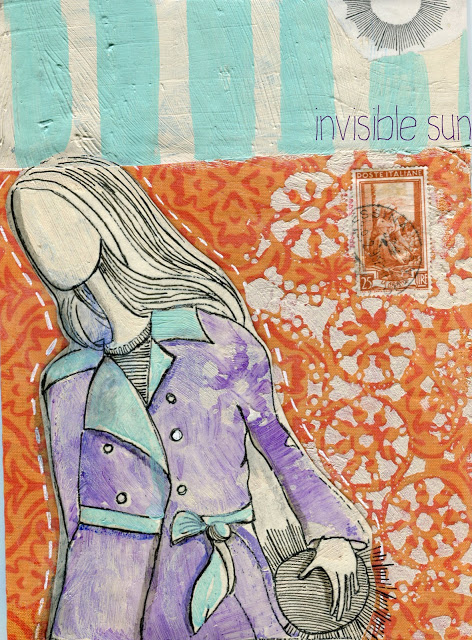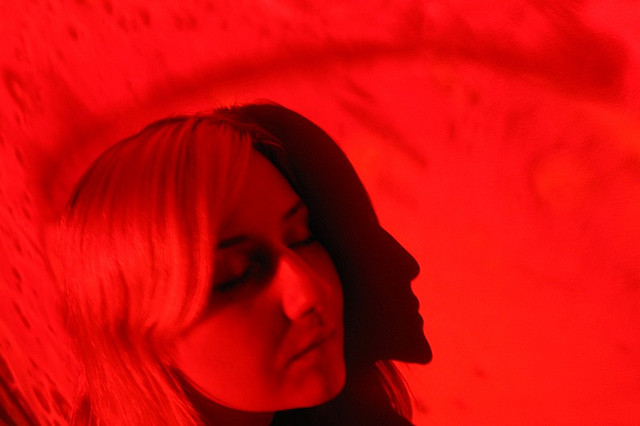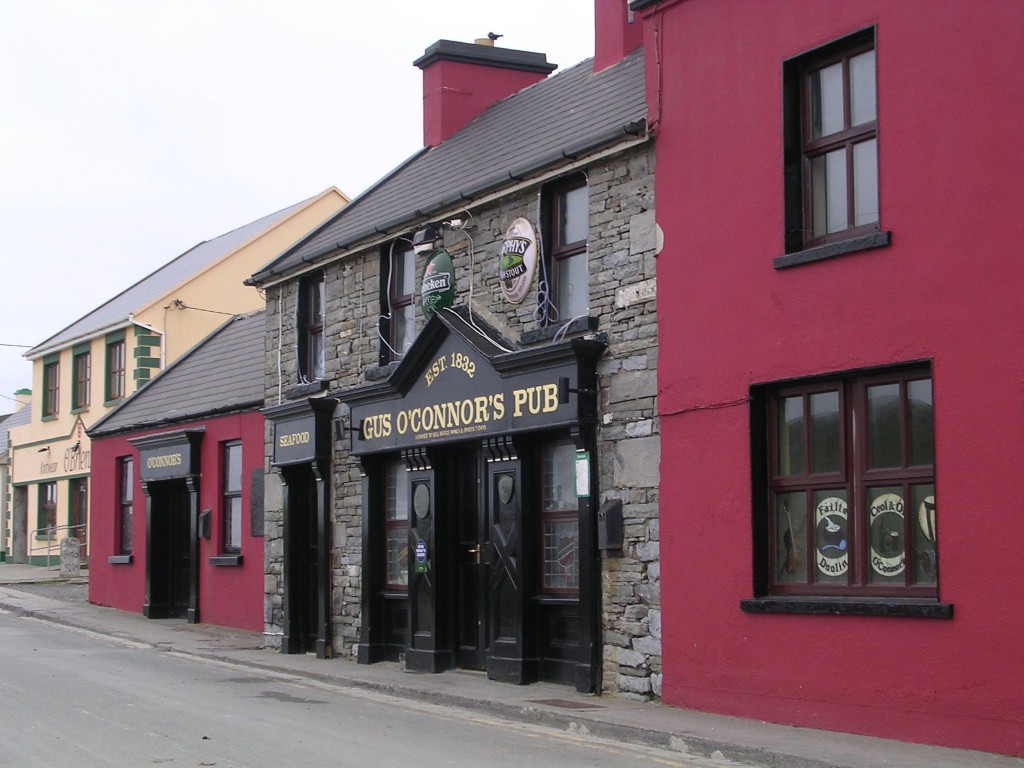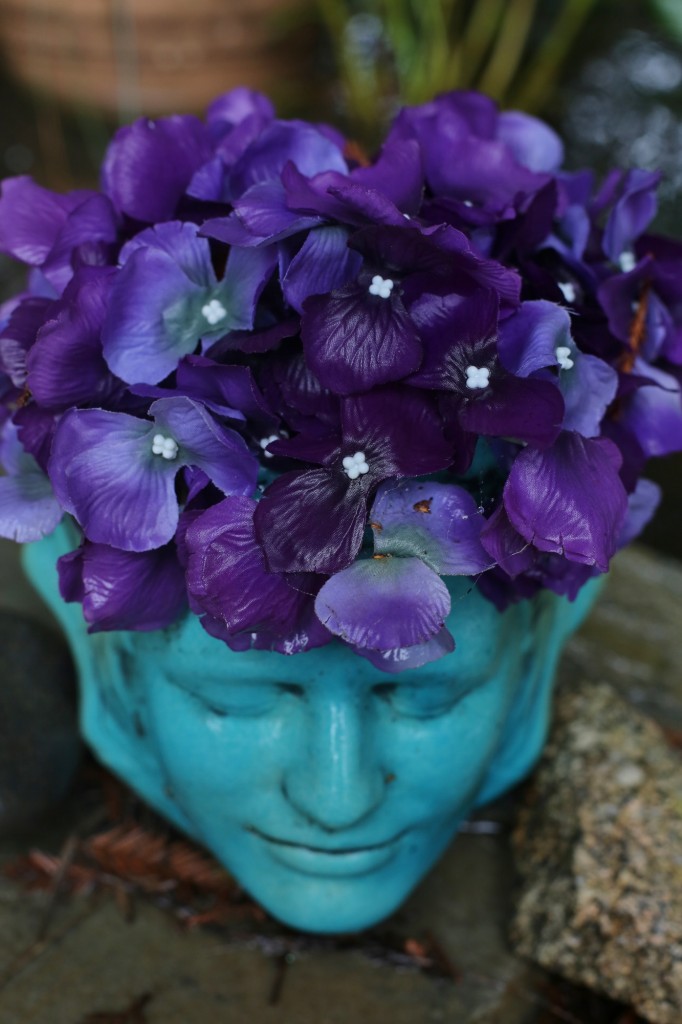
By Patricia O’Connor
If you had known me as a kid, you would not have pegged me as a tree-hugging granola girl. Sure, my family loved nature, just not intimately. Friends’ families went camping (unsanitary) or canoeing (unstable) or skiing (expensive, probably deadly). My family went on road trips. We drove through or around Yellowstone, Estes, Grand Canyon, and Mesa Verde. My mother, a tuberculosis survivor who believed that if one couldn’t sit in the lap of luxury, a reasonable compromise is to just sit, and my father, a former farm boy who had spent too much of his youth shoveling the smellier elements of nature, preferred to view the great parks through a windshield. Any forays from the car were to the well-paved lookouts where Dad, in his Saturday Sansabelts, would snap photos of his doughy children leaning against the reinforced railing that safely separated us from the wild.
As an adult, I want to experience nature more naturally. I hike, snow shoe, ski, kayak, swim—albeit not very often or particularly well. Keep in mind that I got a late start.
I was just on the shady side of fifty when I returned to the cliff dwellings of Mesa Verde, this time with my husband Jeff and our teenaged daughter Kate, and I was looking forward to experiencing the park on foot. The first test of our bi-pedal fortitude was to stand in line for forty-five minutes to acquire our passes for ranger-guided tours of Balcony House and Cliff Palace, two of the most spectacular cliff dwellings in the park.
Eventually, we were greeted by a woman nearly my mother’s age perched behind a tall, wooden counter. Jeff initiated the conversation, but she trained her rheumy eyes on me.
“Did they tell you,” she asked me, “that The Balcony House hike is very strenuous with thirty-two feet of ladders, narrow tunnels and walk ways overlooking hundred-foot drops?”
They would have been her fellow ranger retirees, one of whom was a wiry gentleman wearing Tevas with socks who told us that if he had to choose only one site to visit, it would be Balcony House because it is so “arduous.”
“It is very challenging.” She raised her wiry eyebrows for emphasis. “You might want to just wait up top in the car.”
“Excuse me?”
I wondered what she could see through the thick, curved wall of the wooden counter—the bluish swell of veins along the insides of my calves, perhaps. Could she detect my fallen right arch propped up by orthotics, my weak ankle and attendant knee? Perhaps she could smell my pheromones and determined that I am postmenopausal and therefore at increased risk for osteoporosis and heart disease. I am again a bit doughy, as I was when I first visited the park as a child, but no more so than many other people in line, less so, in fact. I fucking do Zumba, lady.
“Just be careful,” she said, tapping the edge of counter closest to me as if she were patting my hand. Did she think that we were contemporaries? How could we be, I thought, observing the half dollar-sized purplish-black carcinomas peering through her thinning hair, the plume of white that sprouted like pampas grass from a mole on her neck, the slight palsy in the hand still reaching for my own?
“I’ll be just fine, thank you very much.”
“Me too,” said Jeff helpfully, and he steered me away before I could say anything more.
Our first stop was at the Spruce Tree Dwelling (where I did not wait in the car). We hiked down switchbacks to the circa 1190 structure where the Early Pueblo people once lived. My long-legged husband and daughter sprinted ahead. I marched steadily at my own, more comfortable pace. I am generally the carrier of the camera, not to mention the family backpack loaded with waters, sunscreen, and snacks. As family historian, I must allow time for photo ops. As a writer, I must allow time for rumination and observation, but as a fifty-something, perhaps I just need more time.
I pondered this along with the Counter Lady’s warnings as I made my descent. I noticed I was following a woman wearing three-inch wedged heels and carrying a designer purse tucked tidily under her armpit. I wondered if my Counter Lady had a cautionary conversation with her. What about the very white family from Holland who embarked on their hike without hats or sunglasses, or—judging by the pinking of their noses and ears—sunscreen? What about the myriad flatlanders attempting to hike in flip flops, the gay couple (one of whom sported ballet flats), the pair of Cheetos-fed adolescents in their XX Large, orange-dusted T-shirts drawn taught against their heaving chests—did any of these travelers receive the Counter Lady’s dire warning, or was it just me?
I was still fuming about this when we stopped for lunch at the cafeteria near the visitor’s center. Kate took off to peruse the gift shop, while Jeff and I lingered to finish off the brownie we shouldn’t have ordered.
“Is it my imagination, or was that lady singling me out with the warning thing?” I asked him.
“No. It was really obvious. She was talking to you.”
“She didn’t seem worried about you at all.” Sure, Jeff is better coordinated, faster, and stronger than I am, but I exercise more than he does. Beneath his bargain-box tee-shirt with the Mickey Mouse ears and the letters C-A-L-I-F-O-R-I-N-I-A laid out in a misspelled arch beats a heart that loathes gyms. And beneath his Cardinal’s baseball cap hides his balding pate. But that’s not what the Counter Lady saw. She saw only the fine fringe beneath the rim that is the same fawny brown it was when I met him thirty years ago.
“It’s my hair, isn’t it?” I asked, but I knew the answer. It’s my effing hair, my long, wavy, slightly sweaty, gray hair.
“Yeah, probably so.” It’s the answer he didn’t want to give. He spent a year convincing me that going gray wouldn’t be so bad. I had been chemically dependent on drug store dyes for more than twenty years. I dyed every month up to my fiftieth year, and I would have kept on dyeing had I not poisoned myself.
It happened one afternoon. I made the mistake of answering the phone shortly after applying my box color to my hair. The call was from an old friend whose wife had just left him. What was I supposed to do—tell him to hold his story so I could rinse the toxic sludge off my head? I either ignored the timer or didn’t set it. By the time I got off the phone, my entire head was sizzling. I ran to the shower, but it was too late. My scalp was raw, oozing clear pus from open wounds. For the next few days, I felt like I had the flu. My head ached both inside and out. Everything tasted faintly of chemicals. My doctor sent me for blood tests. My liver is fine, thank you, but that experience scared me straight. I haven’t cracked open a box of color since.
I spent the next eight months visiting the salon the way another addict might visit a methadone clinic. Bridgette, my therapist/stylist, mixed high- and low-lights (none of the above ever touched my scalp) to create a hazy blend of brown and gray. Eventually, highlights stopped offering contrast, lowlights wouldn’t take: I was gray.
Honestly, it was a relief not to play the dyeing game anymore. I was glad to be rid of the gloves, goo, and stench, not to mention the potentially toxic overexposure to trideceth-2, carboxamide mea, propylene glycol, hexylene glycol, and aluminum hydroxide.
As I progressed in my recovery, I developed a kind of radar for dye jobs. I saw them everywhere—the fresh and too vibrant brunettes or luminescent blondes, the barbeque reds. And the dimming shades, I saw them too—the tinny, brassy, dulling, sometimes frizzing tresses, the tell-tale skunk stripe at the scalp foreshadowing emergency trips to Walgreen’s or desperate phone calls to stylists: How soon can you get me in? I was free of that now.
I could see them easily, but I felt less seen. As my hair grew lighter, I noticed fewer people made eye contact with me in stores and restaurants. The barista at the coffee stand at the community college where I teach stopped asking me how my day was going. A new acquaintance asked how much older than Jeff I am. I’m just waiting for some freakin’ Boy Scout to offer to help me cross the street. Or maybe up to some cliff dwellings.
You might want to wait in the car.
“This is exactly what I wanted to avoid all those years by dyeing.”
“I know,” Jeff said, trying to soothe me.
“Women are treated differently when they go gray.”
“It isn’t right.”
I could tell that he couldn’t decide if he wanted to try to calm me down or run off to join Kate in the gift shop.
“This, this was blatant.”
“Yes.”
“And from a woman!” I roared as Kate walked up. She looked at her dad, then at me.
“What’s wrong?” she asked.
“Nothing. I’m just a grumpy old lady.”
“I could have told you that,” she said. I must have glared at her.
“Jeez. Take a joke, why don’t you?”
•••
My appalling lack of humor about ageism is nothing new. I remember as a toddler, my parents would trot me out at dinner and cocktail parties to spell C-A-M-E-R-A or S-O-M-B-R-E-R-O. Guests sloshing high balls and Manhattans would ooh and aah for my parents. But they talked to me in that high-pitched voice adults reserve for infants and Chihuahuas.
As an older teen, I would balk when my mother, who ran the sales department of the family want-ad business, insisted on taking me along on sales calls. My jobs were to drive the car and fill out the paperwork. I was her “shill,” she joked, but I didn’t think it was funny when a lecherous client would offer me Cokes from the mini-fridge and invite me to sit a little closer.
I rankled as a young adult on my first writing job at a city lifestyle magazine when the then editor called me “honey” and assigned me the crappy fashion and shopping guide stories. To be fair, I was young and untested as a writer, and if I were the editor, I might have given me fluff stories to start, but I wanted to be taken seriously, even as a toddler, a teen, and young adult. Too often I felt dismissed as a kid or girl.
Eventually, I outgrew all these awkward and easily-labeled phases of life and hit the sweet spot, chronologically speaking – sometime around thirty through early forties. This is the age of relative respect in a woman’s life. You still have your looks, but you look like you might have some experience. By this age, you probably have launched a career, maybe had a child, have done, or at least begun, some important life work.
But, I was a late bloomer. The looks started to go before the career was launched, before my baby was a toddler, before I was ready. I kept dyeing not because I wanted to be a Barbie or a bombshell. I just wanted to linger in that sweet spot a little longer, before I felt discounted again.
My mother, who is a very young eighty-nine-year-old, still lives alone, drives, plays the piano and keeps up with the news. Sometimes when I take her shopping she insists that we bring her “Cripple Card” so that we can park in handicapped spots. She says she wants to spare me the long walks, and she takes my hand. She likes it when we shop together, but she is annoyed when I try to do too much for her. She is perfectly capable of carrying her own bags, of retrieving her own mail from the box. “I’m not as old as you think,” she says. She speaks slowly so I can understand: “I’m not in-valid. You are dis-abling me.”
•••
We arrived a few minutes early for the Balcony House tour and parked in the lot overlooking the first descent before the arduous, strenuous, death-defying climb. Jeff and Kate suggested I might want to wait in the car. “We’ll crack a window,” Jeff offered. I offered my middle finger in return.
My anxiety, which had not been great, diminished considerably when we joined our fellow adventurers at the shaded and paved waiting area. Among them was a long-limbed woman from London who appeared to be at least six months pregnant, the increasingly pink-nosed family from Holland, and the gay couple, one half of whom had exchanged his ballet slippers for flip flops. In fact, flip-flops outnumbered Keens, Tevas, and athletic shoes. There were sunglasses and hats, but only on the smallest of children, one of whom was a three- or four-year-old boy with round, red, tear-stained cheeks who was in need of a nap.
The ranger introduced herself as Nancy. She looked to be near my own age with a thick, wavy (dyed) auburn hair and a matter-of-fact attitude. She asked us to introduce ourselves and to say where we were from. “Let’s find out who has traveled the farthest.”
The English lady and the Dutch family were in the lead until we met Yaya and Jack, a couple who had flown in from Qatar that morning to visit their daughter and her family living in Colorado on a work visa. Judging from their attire—casual business slacks and basic brown lace ups for Jack, a floral short-sleeved blouse and black walking shorts for Yaya—the couple had no idea what they had agreed to do on their first afternoon in the States. Jack and Yaya’s daughter and son-in-law, each with a child on hip or in hand, seemed well acclimated to high altitude and thin air of the Rocky Mountain desert. Jack looked pale and clammy. Yaya looked terrified, particularly when she looked at Jack.
Privately, I wondered if they had come all this way to break the news in person: Jack has congestive heart failure, or Jack has leukemia, or Jack has any number of ailments that make taking him on this arduous, strenuous, death-defying climb a bad idea. But there couldn’t have been time for such a conversation so early in their trip. The young couple with their very young kids seemed unconcerned by their father’s waxy complexion. But Yaya and me, we were worried.
How is it that I got the Counter Lady’s warning and these people did not?
I was wrong. Everyone got the warning, just no one took it seriously. Ranger Nancy recited the same narrative, even added details that the Counter Lady omitted: “If you are acrophobic, claustrophobic, suffer from shortness of breath or poor balance, this may not be the hike for you.” In addition, she said, you must be able to climb under your own power and use both hands on the ladders, so “children must be able to climb unassisted.”
The ranger looked at the family from Qatar. I looked at the red-cheeked preschooler. Yaya looked at Jack. Jack looked into the middle distance. No one spoke. And so we were off.
Ranger Nancy stopped us from time to time to tell us about the dwellings. Balcony House wasn’t the largest of the cliff dwellings, but it may have been one of the best protected. Tucked into the rock wall like a multi-roomed pearl in an oversized oyster, the dwelling would have been virtually invisible from above. Invaders from below would have had to climb hand-over-hand up sheer rock to reach the hidey-hole homes, which is to say their hands would be otherwise occupied and unable to wield their weapons, making them easy pickings for the cliff dwellers above. Further, invaders were usually flatlanders, unused to the ups and downs of cliff life. Of course, the cliff-dwelling people were expert climbers, often hoisting baskets of food or water along with themselves up the rock wall, nothing more than their fingernails with which to secure their purchase. Even the children skittered up and down the rock like spiders. I wonder if Ranger Nancy enjoyed telling us this bit so that we modern-day climbers might feel a little like sissies relying on the sturdy, double-sided ladders secured to the rock by bolts and cables. As an added protection, our thirty-two-foot ascent wasn’t continuous, as the Counter Lady would have led me to believe. Instead, we climbed two discrete ladders, separated from each other by a bit of paved trail and a short set of concrete steps—with railings. Easy peas. Even the preschoolers skittered.
The second ladder delivered us to the dwellings themselves. Our party spread along the narrow walk ways that circled sunken kivas and edged the rock walls of the remaining apartment-style sleeping quarters. We paused not only to observe the ceilings stained black with thousand-year-old smoke, the symbols etched into the stone indicating wind, water, or the cycle of life, the worn footprints in the stone floor, but also to catch our breath and enjoy the cool shade provided by the stone alcove. Everyone was quiet, even the children.
Ranger Nancy used this time to tell us a bit about the Ancestral Puebloans. It is politically incorrect, she informed us, to call the original dwellers Anasazi. The old Navajo word does not just mean “Ancient ones,” as we were taught as kids. It literally means “ancestors of our enemies.” The new terminology is more accurate. The natives of the Four Corners area didn’t die out but moved on to become the Pueblo Indians of Northern New Mexico and Southern Colorado.
The Ancestral Puebloans took up residence 1,400 years ago and made a good long run of it—seven hundred years—here in the rocks. Their lives were difficult, not only in terms of acrobatics and tribal warfare, but they were at the mercy of the weather. The average life expectancy of an Ancestral Puebloan was thirty-five years, said Ranger Nancy. Jack and I would have been anomalies.
Jack was still standing, if winded, during this high-altitude lecture. Yaya leaned heavily against a rock. But eventually, the lecture ended, and it was time to move on. The next hurdle was to climb up a large boulder-sized ridge to reach a narrow crawl space. We would be aided, Ranger Nancy said, by hand and foot holds left for us by the Ancients. For most, the hand and foot holds were unnecessary. The flip floppers all but flew up the rock. But Jack struggled. He slid. Yaya tried to grab his arm but missed. His son-in-law caught him and helped pull him up to a flat spot where he could get down on his hands and knees in order to crawl through the narrow tunnel. Jack and his family disappeared into the dark crevice before we even entered it. Kate moved gracefully ahead of me, and I followed, less gracefully, behind.
Finally, we reached the last set of ladders that would return us to the top, but the flow of traffic stopped. Jack was stuck, seemingly unable to move up or down the ladder. Yaya was ahead of him, cajoling him to move forward. The son-in-law positioned himself beneath Jack, prepared to give him another boost.
Jack’s arms and legs shook. He stared vacantly, away from the stone wall before him, ignoring the worried voices, the overly helpful hands. When he was ready, he climbed. When he needed to, he rested. Eventually, he made it to the top. We were too far behind to see Jack crest that final rung. I didn’t get to see him hurried off to the car or the rest area where he could throw back some baby aspirin or nitroglycerine or whatever he needed. But I’m sad I didn’t get to see his face. I would like to think he wore an expression that said to Yaya, his daughter and son-in-law, the preschoolers and the other adventurers, I made it, suckers, and you didn’t think I could!
I had underestimated Jack. I had underestimated the flip floppers, the preschoolers, the pregnant and the pink—just as the Counter Lady had underestimated me.
•••
Later that summer, I took Kate and friends to the public pool. The teenaged girl working the sales desk pulled herself away from a giggly conversation with off-duty life guards. “Do you consider yourself a senior?” she asked, not quite looking at me.
“No, I do not,” I snapped. I consider you impertinent, I thought but did not say. I paid the $1.50 extra for my admission—a small price for dignity.
The question came up again and again that summer—at the theater, museum, car wash, amusement park. One woman just gave me the senior coffee (smaller and cheaper) at McDonald’s without even asking.
I went back to my color therapist Bridgette. She walked around me. “The silver is pretty but not on you. Your face is too young.”
I love Bridgette.
Bridgette suggested trying a demi: “A temporary color. It will blend with the gray, and it won’t hurt your scalp.”
And suddenly, I was brunette.
It was like celebrating eighteen months of sobriety with a beer.
Jeff was startled. Kate rolled her eyes. But both said they liked it, kind of. Shortly after the start of the fall semester, a male colleague at the community college stopped me in the copy room: “You look so much better.” I posted my picture on Facebook expecting to receive what-did-you-do-that-for comments. Instead, I received “likes.” People in grocery stores and theater lobbies started talking to me again. And no one asked me if I consider myself a senior.
I’m back, baby!
I am embarrassed to admit it, but I fell all too easily back into the dye. I look at my face once again framed in brown and I see hints of possibility, glimmers that the Counter Lady clearly did not see when she looked at my hoary hair first and at me second. And, to be fair, I looked right back at her as if through her tuft of cotton candy white. Like sisters raised in a culture that treats aging like a disease, we saw in each other what we are expected to see: one compromised, diminished, or, as my mother would say, in-valid.
Kate, my now sixteen-year-old daughter with the long golden brown hair, is far wiser than I. She eschews make up, hair doo-dads, curling irons. She prefers sweat pants to skinny jeans, and she is beautiful. She tells me what she learned in her history class about how cultures who revere their elders tend to be more peaceful. If you want a warrior society, separate the aged from the young.
She tells me this during our trip to the grocery store to pick up a few items for my mother. It’s a Wednesday. Senior discount Wednesday.
The cashier, a man near my own age, looks at me with pleading eyes. He wants forgiveness. “I don’t know how to ask this,” he begins. The young woman bagging the groceries seems annoyed. “He’s trying to ask you if you qualify for the senior discount.”
“I’m fifty-three,” I say.
“Well.” The man seems relieved. “You don’t. It’s so hard to ask. You know, people are so sensitive. I mean a lot of women. They get angry. I don’t mean you. You seem nice.”
He could have meant me, but I smile benevolently and shake my hazy-brown head. “Some people.”
•••
PATRICIA O’CONNOR is a demi-dyed mother, writer, and teacher of English composition living in Albuquerque, New Mexico, with her semi-athletic husband and altogether graceful teenaged daughter. Her creative non-fiction work has appeared in Brain, Child and Vela magazines.

 Follow
Follow

